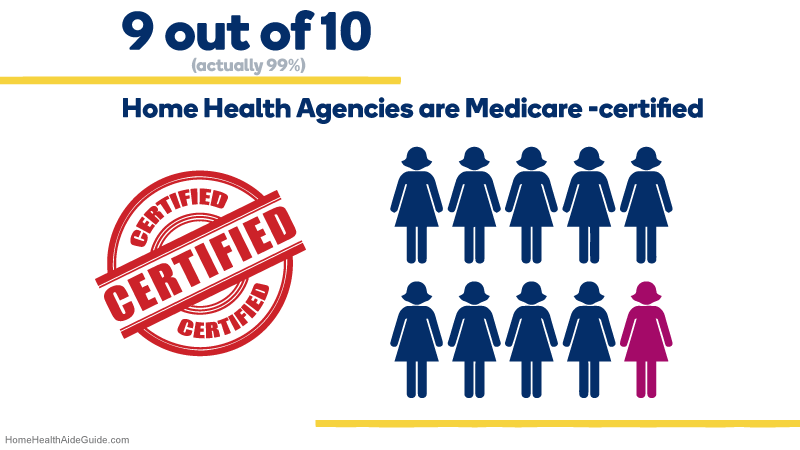Are Home Health Aide Certification Requirements too Strict?
One in three Americans is aged 65 or older, making the US home to one of the world’s largest populations of seniors. This number is only going to grow in the coming years, as more and more baby boomers retire.
Along with this growth comes an increased demand for home health aides (HHA’s) as more and more seniors want to stay in their homes rather than move into a nursing home.
Home health aides ensure the well-being of physically or disabled individuals. Efforts are sometimes made toward this end, including handling of wounds and changing sterile bandages, giving insulin, assisting them in paying bills, and tending to shopping needs and light housekeeping.
Unlike other health care workers who can only treat patients inside healthcare facilities, HHA’s work in private homes, and may be hired by a home health agency or the patient’s physician. Because of this, it’s essential for HHA’s to confirm that they are appropriately credentialed and ready and willing to enter the homes of the patients that they will treat.
Home Health Aide Training
There is no specific education called for an individual to be employed as a HHA, though some wayfinding and postsecondary programs can provide training. Some HHA and hospice companies, nonetheless, require a high school diploma from their employees.
Most home health aides who work for firms that accept payments from Medicare or Medicaid must spend a set period of time validating their capabilities, whereas those employed by businesses that are private are not required to do this.

Certified nursing assistants (CNAs) and licensed practical or registered nurses, often referred to as experienced aides, are often the ones tasked with developing and supervising another aide’s on-the-job training.
Federal HHA training Requirements
A Medicare-certified home health agency in the US must provide its services to clients who are certified HHAs by the local or state health department. Federal law says that HHAs working for these agencies must have 75 hours of training, including 16 hours of staff training.
This is the minimum number of hours required by law, and states must allow health-care providers working under their license to engage in their activities.
However, it’s important to note that facilities that accept Medicare are the only ones that are Medicare-certified. Private organizations that do not accept Medicare have no HHA certification requirements.
State Training Requirements
Certification requirements largely differ by state and HHA training requirements for are fairly typical of other states
In New York, permitted HHAs must train for at least 95 total hours of training, including 30 supervised clinical hours.
Want to work as a HHA in Rhode Island? HHA’s must finish a CNA program and pass licensure exams and a background check. A CNA certification in Rhode Island requires at least 100 total hours of training, including 20 clinical hours.
In conclusion, home health aides are responsible for the well-being of some of society’s most vulnerable members and should be thoroughly trained and vetted to ensure their safety. HHAs provide an invaluable service and should be respected and appreciated for the work they do.








